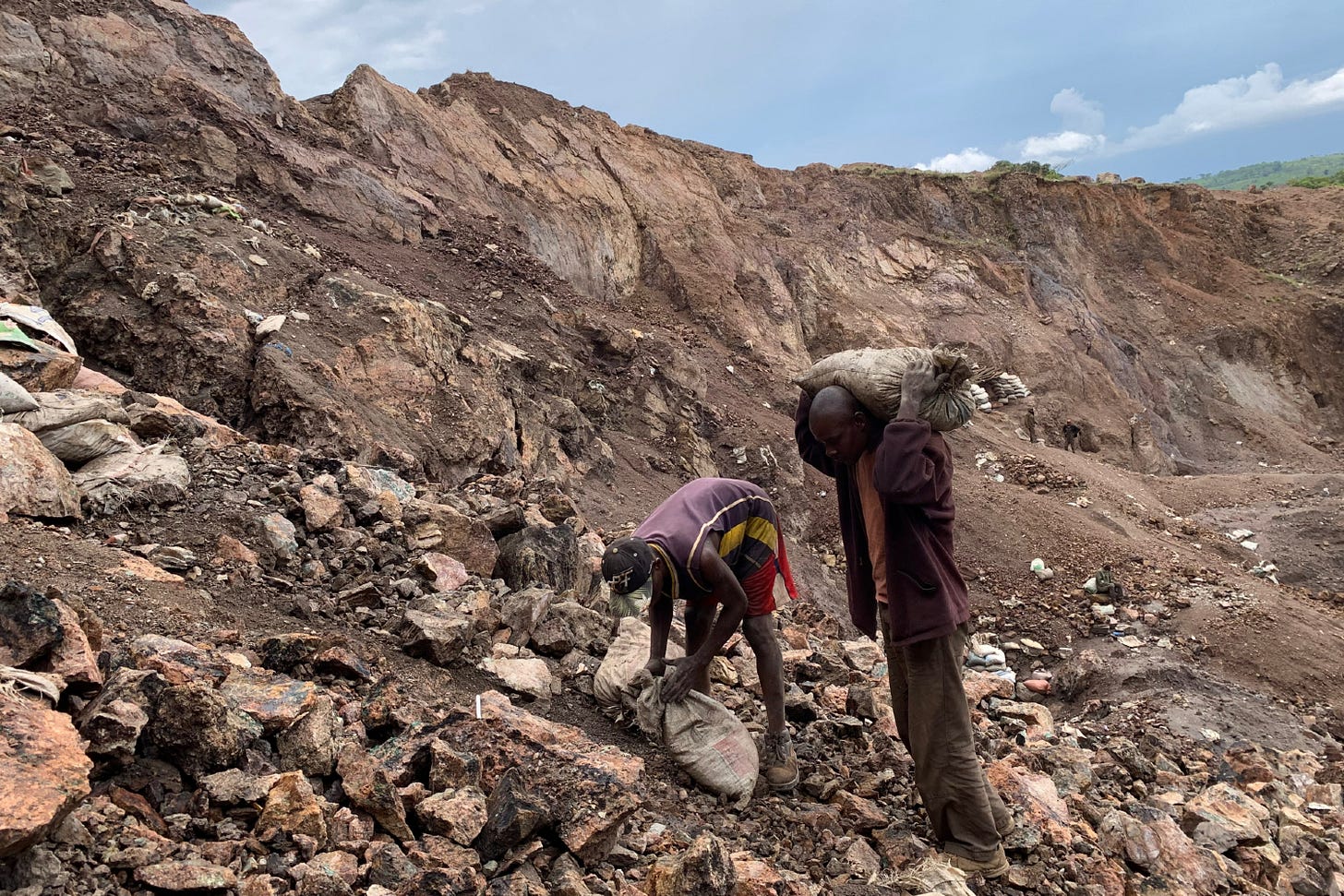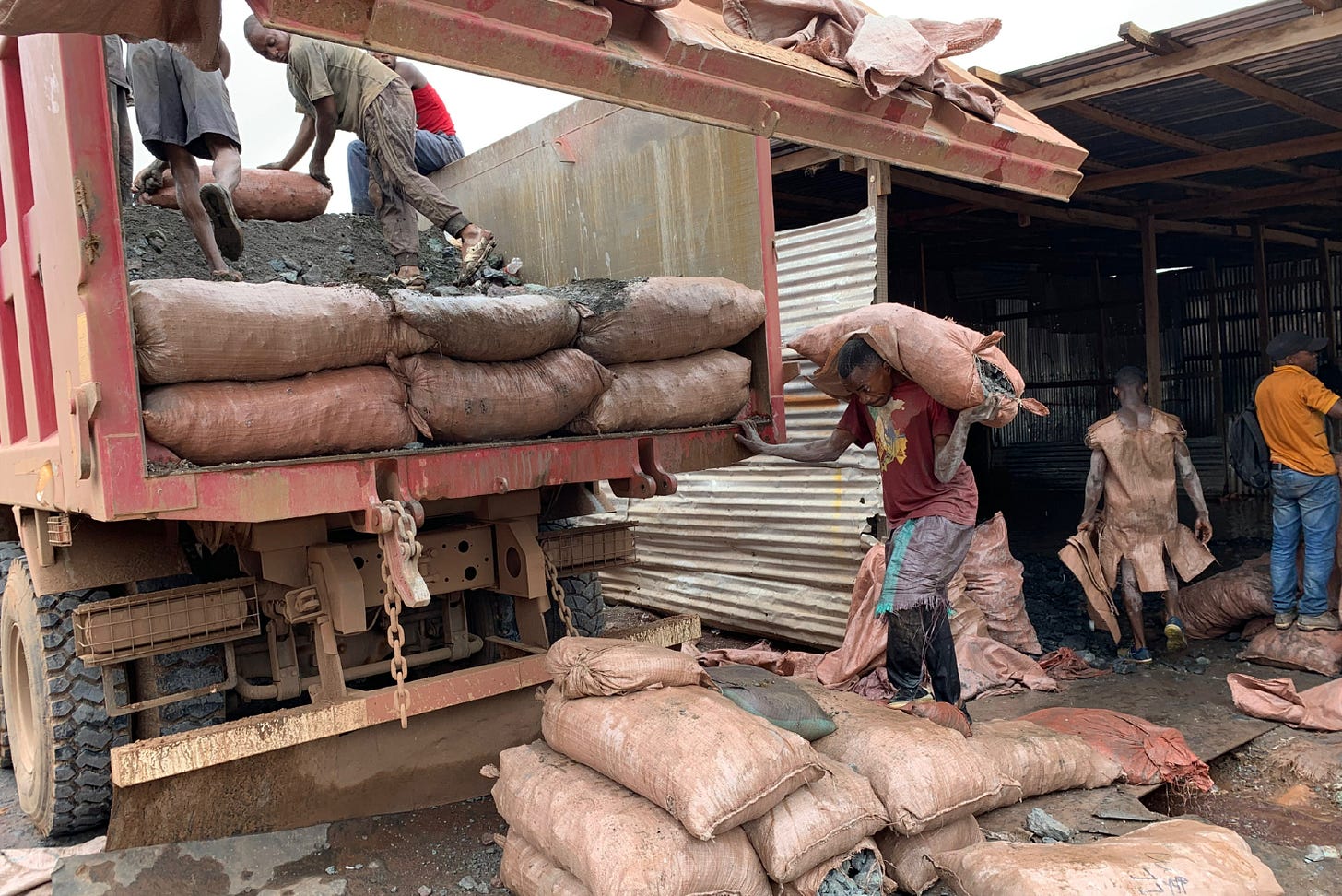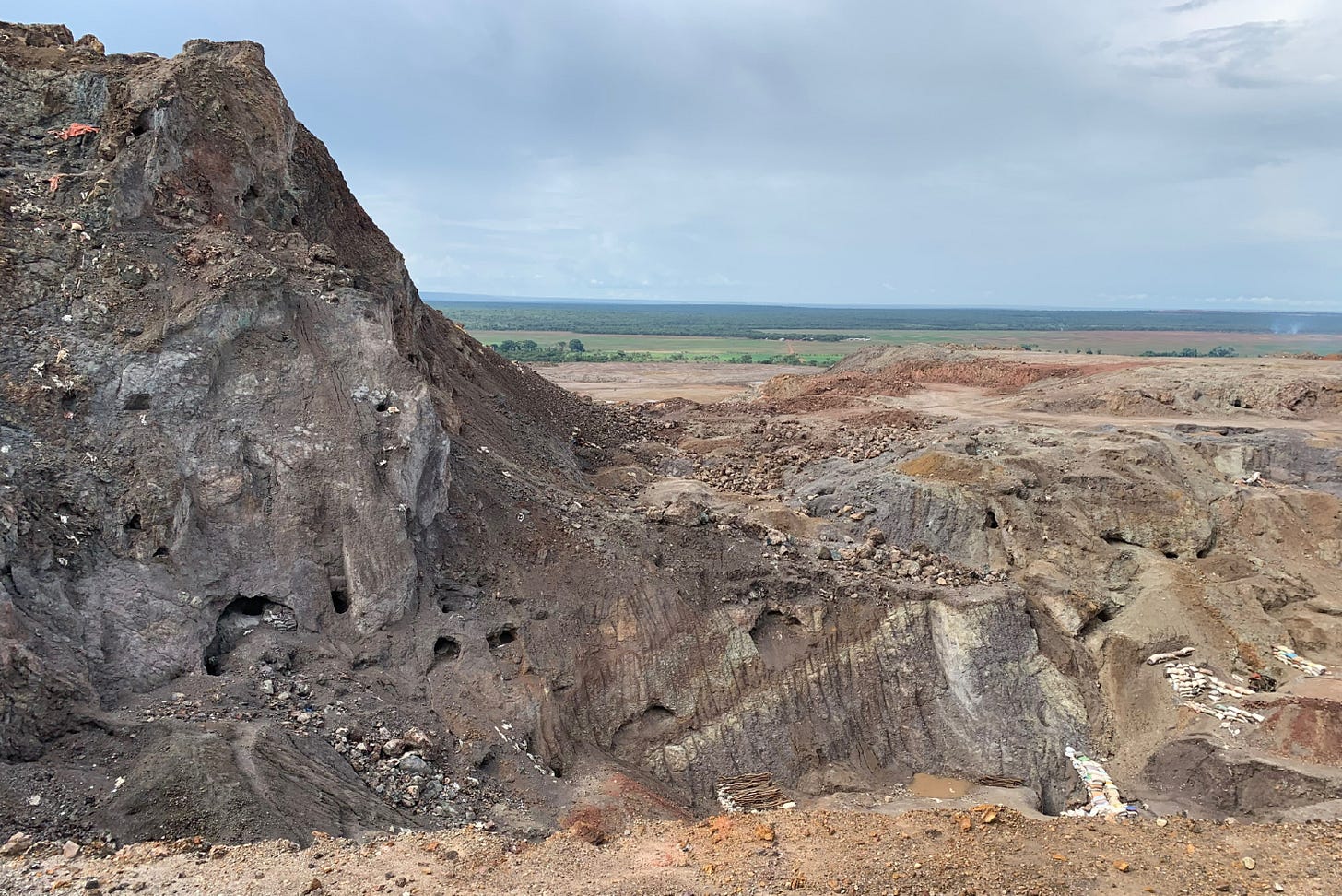Who are 'clean cobalt' programs really serving?
A Congo-based NGO says cobalt tracing programs are avoiding – and maybe even exacerbating – the problem.
Climate technologies require enormous amounts of metal. I’m Ian Morse, and this is Green Rocks, a newsletter that doesn’t want dirty mining to ruin clean energy.
I probably don’t need to reiterate for readers of this newsletter the importance of cobalt to climate technologies. What could use reiteration, though, is how much attention has been paid to it, and how little progress has been made.
It’s been more than five years since Amnesty International showed how child labor in the Democratic Republic of Congo produced minerals like cobalt. It had been known for a while, but Amnesty pointed the finger at tech companies like Tesla and Apple for knowingly buying the metal. Cobalt is a primary component in most lithium-ion batteries, but companies had not done enough to ensure that their products didn’t exacerbate systemic violence against impoverished miners. Not only were some Congolese artisanal miners children, but also many worked in dangerous and unhealthy work conditions, only to be short-changed by the middlemen that distributed cobalt to the rest of the world.
It’s also been five years of industry-led efforts to improve the sector. There’s now a long list of “initiatives” and “alliances” that purport to address human rights issues in company supply chains: There’s the Responsible Cobalt Initiative, the Responsible Minerals Initiative, the Fair Cobalt Alliance, the Global Battery Alliance with the Cobalt Action Partnership and commodity giant Trafigura’s partnership with the Congolese government. Some of these efforts dissolved after cobalt’s price shrank. Companies like Tesla have also tried to abandon cobalt entirely by replacing it with other metals.
Last week, Congo-based Afrewatch said in a report that these programs don’t even address the reason people now speak of “dirty cobalt.” In addition, the programs may be pushing costs to small-scale miners, also called artisanal miners.
“There is a lot of money coming, saying that companies are trying to support artisanal miners. But if you see, this money has not been used to solve the problem,” director of Afrewatch Emmanuel Umpula told me. “A lot of the programs that are going on now do not include the interests of artisanal miners.”
Umpula visited and interviewed miners in the field, and most questioned why cobalt sourcing programs existed, especially if they didn’t affect miners. One of the primary issues, Umpula says, is that the initiatives target cobalt from groups who are already upholding standards of health and safety. The areas where miners are digging down to depth of 90 meters (almost 300 feet) and trapping dust in their lungs are left out by design. Artisanal miners number more than 150,000 in Congo’s cobalt hotspot.
When they are left out, mineral purchasers drive a black market in which miners are cheated, Umpula says. Miners have little bargaining power. Meanwhile, the purchasers sign security and trade agreements with governments, who themselves are trying to benefit from responsible sourcing schemes. The costs of these programs must be paid, and as people pass it down the supply chain, it falls on miners.
“All the money you are cutting off from the system, that means artisanal miners have to pay that money back,” says Umpula. “So it’s the poor people who are paying.”
Some programs, for example, require companies pay consultants to audit their supply chains, which increases the cost of procuring cobalt. “The money [companies] are trying to invest is just for them themselves,” say Umpula.
Through dozens of interviews with miners and government officials, the report (in collaboration with UK-based International Institute for Environment and Development) outlines what government and foreign companies can do. An ideal solution, Umpula says, is called formalization. Miners would earn the right to mine where they want, and the government would protect miners from being cheated on prices. That means treating artisanal miners as legitimate players in the cobalt sector.
“Whatever solution you can imagine, if the solution doesn’t include how to sort out these problems, that means the interests of artisanal miners will not be taken into account,” says Umpula.
Umpula says there has been some progress, but not where it counts. Child labor has been reduced in some areas, especially where there are cooperatives. However, the root cause of child labor — poverty — has not been addressed, he said. Deprived of access to food and land, families with little money find hope in mining expensive, high-demand metals.
“Families in poverty are going to take this risk because they don’t have other choices to survive. No program is trying to sort out this problem. We talk about the consequences of mining, but we don’t see people investing enough means to sort out this problem,” says Umpula.
Miners feel that the foreign-led initiatives seem redundant, because the Congolese government already has laws that tackle human rights abuses in the sector. However, Trafigura’s partnership with the government to buy ‘clean cobalt,’ for example, creates a conflict of interest for the government. Although the details of the agreement have yet to be published (as required by law), Trafigura acts as a buyer for 50% of cobalt production.
Battery companies have realized that cobalt is not going away anytime soon, despite deliberate moves to produce ‘cobalt-free’ batteries. There are some concerns that dropping cobalt would have repercussions for the incomes of miners in Congo. An additional concern with that option is its effect on recycling. Cobalt is the most valuable product for recyclers, and without cobalt, recycling may become less attractive. Cobalt is a great metal for high-powered batteries, scientists have told me. There’s nothing inherently bad about the metal, but rather the systems that extract it.







